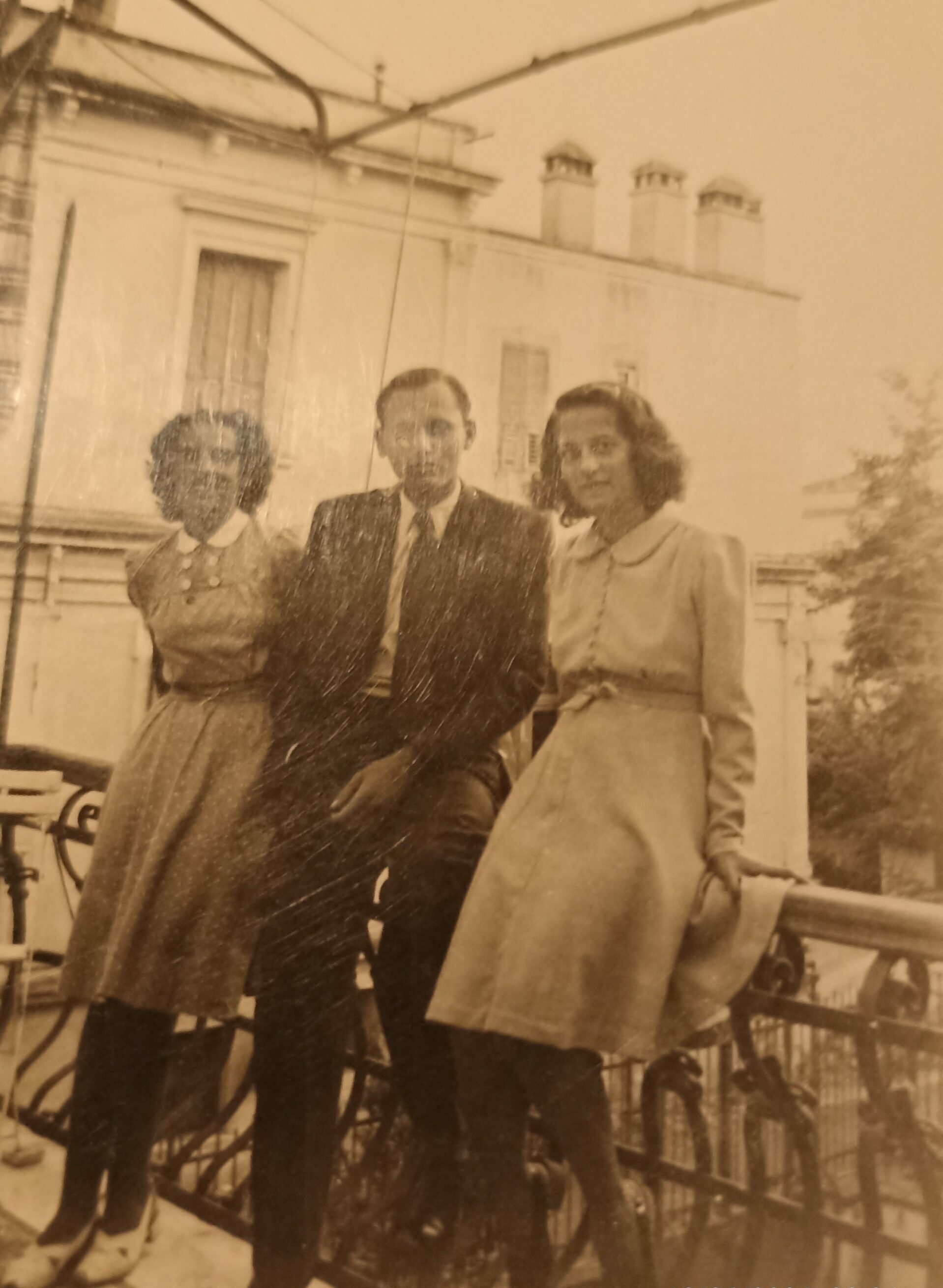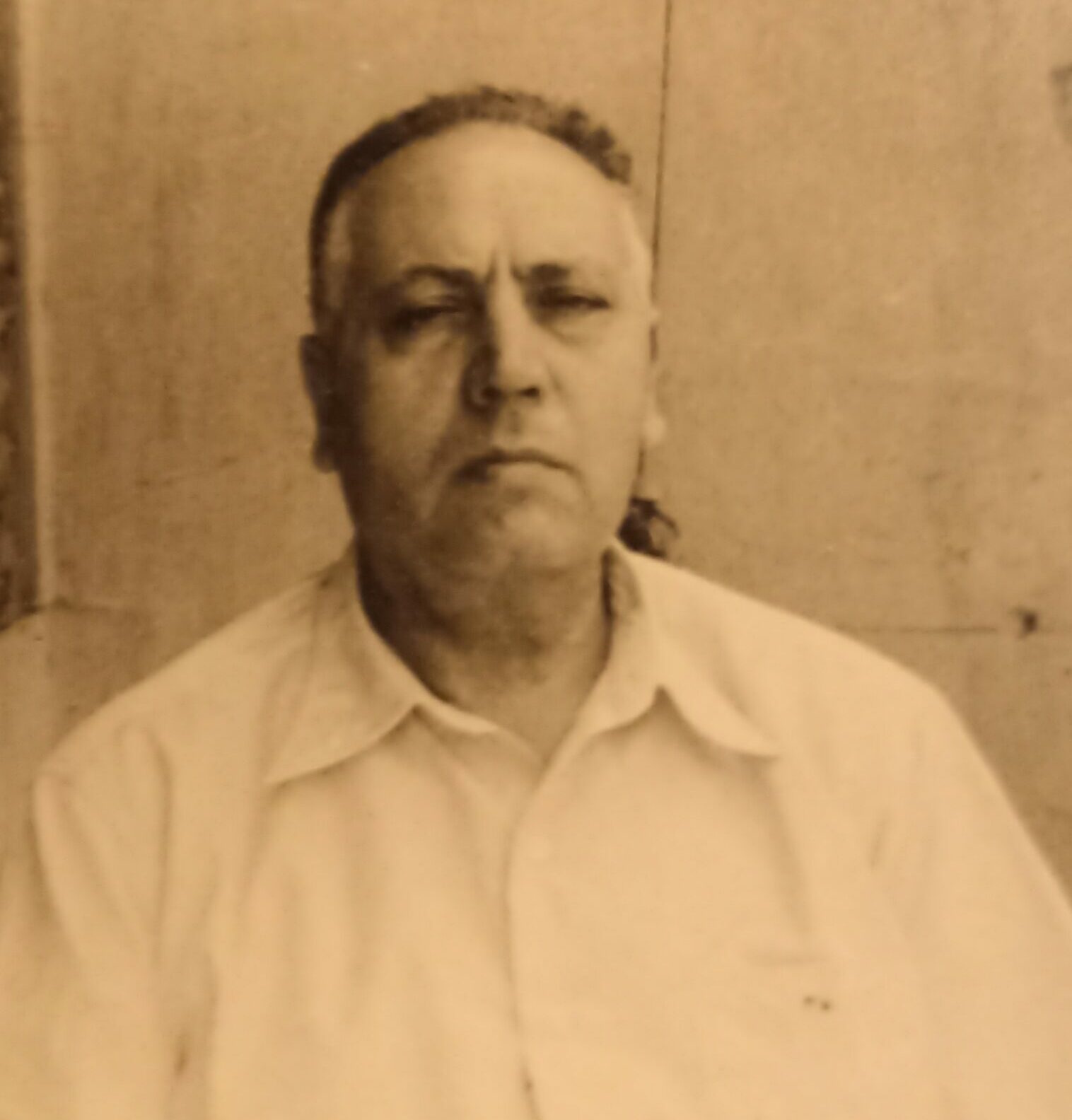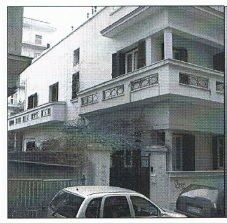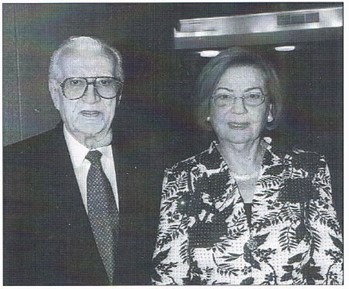RESCUING THE ASSAEL FAMILY
Ida and Markos, Andreas Assael’s grandparents, lived in Thessaloniki with their three children, Fred-Iossif (1919-2006), Sarah-Janine (born 1923) and Rachel-Loulou (1925-2007). They owned a factory for household goods in Frangon Street in the city centre.
Fred Assael attended the German school in Thessaloniki. When Hitler came to power in Germany in 1933, Markos removed Fred and his sisters from this school and sent them instead to the French school (Lycée). Fred studied chemical engineering and afterwards worked at the Xenakis cooking-oil factory in Thessaloniki.
German occupation 1941
A German officer was billeted in the Assael’s house in Vassilissis Olgas Street. He warned Markos about the deportations to Germany. The oil factory where Fred worked was requisitioned by the Wehrmacht. On 11 June 1942, Jewish men were required to attend an assembly in Liberty Square where they were registered for forced labour. While there, Fred was roughed up by Laskaris Papanaoum, who was known in the city as a collaborator. Max Merten, head of the German military administration in Thessaloniki, issued Fred with a certificate confirming that his work at the oil factory was essential to the war effort. As a result, he avoided being taken to a forced labour camp in 1942. However, shortly afterwards, the family had to move into the ghetto, where they lived in a house in Papakyriazi Street on the corner of Crete Street (in the Martiou Ghetto). Markos Assael sold all his goods for a total of 150 English gold pounds before they could be confiscated.
Beatings at the SS offices
After the war, Fred Assael told his story: “It was 30th April 1943. On that day, my family, my parents and my two sisters left the small apartment on the ground floor … in the ghetto, and went into hiding elsewhere.” While Fred was at work, he was ordered by a Jewish ghetto policeman to accompany him to the headquarters of the SS Sonderkommando (special unit), which was responsible for organising the deportation of the Jewish population in Greece. There, Fred was brutally beaten by Alois Brunner, head of the Sonderkommando. Brunner wanted to know why his family was no longer in the ghetto. As Fred was not wearing a yellow star, he was first sent to the Jewish community to get one.
Back in Brunner’s office, Fred Assael showed courage. Later, he told his son Andreas: “I produced the certificate from Merten confirming that as a chemist I was needed for oil production, and said: ‘You have ordered me to come here and beaten me, but you will be responsible for the fact that 10 tons of oil will go to waste because I am not there to supervise the processing. And if you don’t believe me, call the military supply officers.’” Fred was on good terms with these officers. Before he was summoned to the SS offices, they had agreed between them that they required his services. When Brunner called, the officer confirmed that there were production problems and demanded that Fred return to his workplace.
Fred also said that Brunner had given him his word that if he came back the next day with all his family, each of them would receive papers allowing them to stay in Thessaloniki. Fred returned the following day, but only with his parents. For this, Fred’s father Markos Assael was immediately whipped. When Ida stepped in front of her husband to protect him, she was also beaten. Fred Assael could only look on helplessly. Brunner let Fred go; his parents had to stay. Fred did not want to leave without them and was beaten. In the end, they were all permitted to leave.
Rescued
Manolis Koniordos, a friend of the family who had already hidden the sisters, waited in the ghetto apartment for Fred Assael and his parents. They went into hiding the same night. Manolis took the Assaels to Maria Voudouroglou. During the Greek-Turkish war in 1922, she had been evacuated from Smyrna (present-day Izmir) and fled to Thessaloniki. Maria bought her house with the money she earned as a domestic worker at the British embassy. The Germans arrested her in 1941 and interrogated her for hours to obtain information about the British embassy. She received blows to the face, her nose was broken. This awakened in her a deep hatred of the Nazis.
She sheltered British soldiers who had become separated from their units during the German invasion of 1941 in order to save them from German captivity. This was courageous, the penalty was death. Maria and her son Antonis took in Markos and Ida Assael and their three children. The seven of them were able to cover the cost of rent and food thanks to the gold coins. Maria had to buy beans, lentils and other groceries in separate shops.
The hiding place
All five of the Assael family now slept in one small room, blocking the door with a wardrobe. Markos and Fred set up an emergency hiding place in the kitchen. When visitors arrived unexpectedly, the parents hid there with the children. Whenever Maria left the house, the family stayed in one place so as to avoid making any sounds that might give them away. The newspapers printed headlines such as: A Jewish family is hiding among us; anybody sheltering them will be shot. Many people were spied on and denounced. Maria was therefore extremely careful. Every few months she sent the Assaels to friends of her helper Manolis and threw a party to put curious neighbours off the scent. Once, German soldiers came into the house with the aim of requisitioning the property, but they found it unsuitable. The parents went through the emergency drill repeatedly with the children. To avoid being found, they practised hiding – ever more quickly – in a coal box under the bed in the cellar.
A new hideout
At the end of September 1944, ELAS partisans came to the house with the intention of confiscating gold belonging to Jews in hiding. The Assaels, fearing an attack, fled down the back stairs. They were now on their own, on the street without papers. Their own house was occupied by strangers. Their former neighbour, who had previously rented the rear building of their house, was pleased to see them all alive but afraid to give them shelter. Kostas and Kitsa Athiridis, acquaintances of Markos, took the Assaels into their home in Gravias Street. They gave the family their bedroom. That night, Markos and Ida slept in a bed for the first time in 18 months. Two weeks later, the Germans withdrew and the family was able to leave their hiding place.
Making a new start was difficult. Refugees from eastern Macedonia, at that time occupied by the Bulgarians, were living in the family’s own house; the business premises had been confiscated by a collaborator. Janine married a British soldier and started a knitwear company in London. Loulou got married and emigrated to Argentina. She missed her home and later returned to Thessaloniki. Markos and Fred set up a metalware factory. In 1992, Manolis Koniordos, Maria Voudouroglou and their son Antonis were awarded the honorary title “Righteous Among the Nations” by the World Heritage Holocaust Center, Yad Vashem. In 2017, Kostas and Kitsa Athiridis also received this award.




